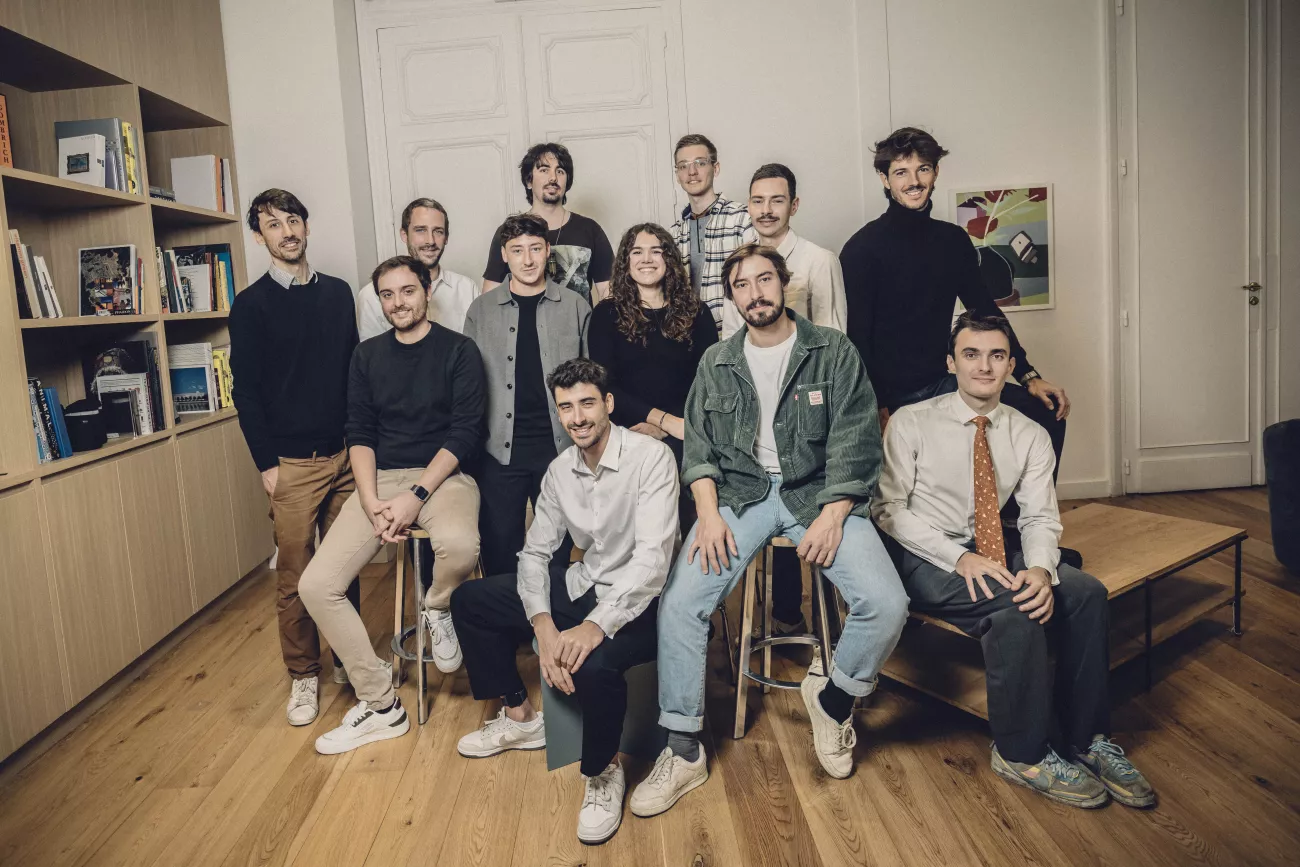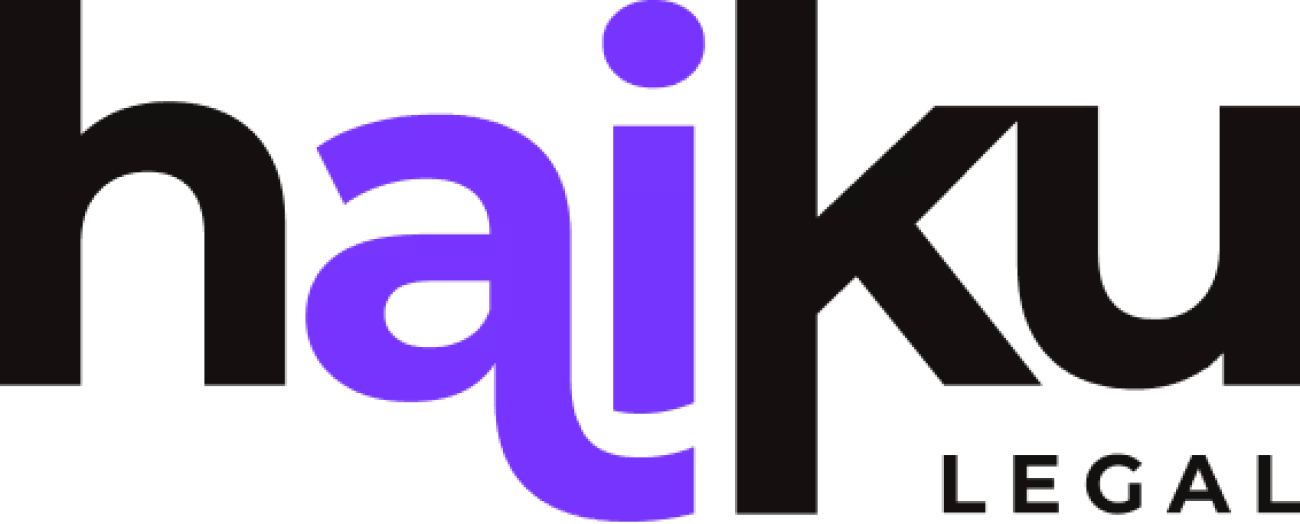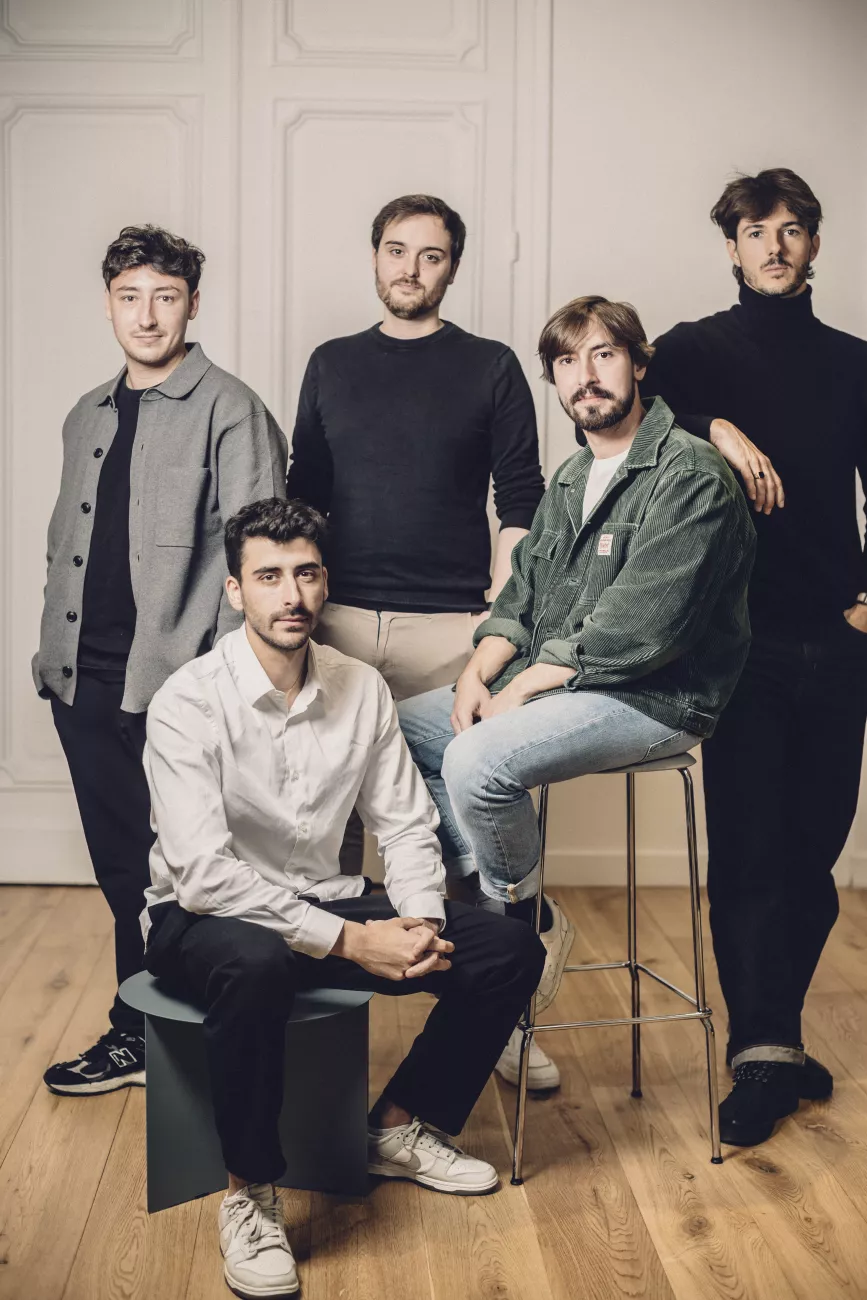
Jean-Marcel Touzet, a graduate of the Grande École Program at Paris School of Business and a passionate entrepreneur, co-founded Haiku, an innovative startup specializing in artificial intelligence solutions for law firms. In this interview, he shares his journey, his experience at Paris School of Business, and the challenges he faced as an entrepreneur.
Discover how he turned his vision into a company that is redefining the legal sector.
Jean-Marcel’s journey
Can you introduce yourself and share your journey at Paris School of Business?
My name is Jean-Marcel Touzet, I’m 25 years old, and I am the co-founder and Marketing Director of Haiku. Before launching this startup, I spent five years studying at Paris School of Business in the Grande École Program, where I earned a master’s degree in entrepreneurship.
I joined Paris School of Business at the age of 19 after changing academic paths. Joining the Grande École Program allowed me to pursue a curriculum leading to a master’s degree, with a clear vision of my goals. Unfortunately, I couldn’t participate in an international exchange due to the Covid-19 pandemic. However, this setback was offset by a deeply enriching personal experience: at the end of my master’s program, I spent eight months backpacking across Asia, exploring eight countries.
I chose to specialize in entrepreneurship for two main reasons:
- My passion for entrepreneurship: I’ve always been drawn to the idea of building, innovating, and tackling challenges.
- A global vision of business: A master’s in entrepreneurship doesn’t train you in a specific technical expertise but provides a comprehensive understanding of business management and the skills needed to lead. This bold choice left me with few alternatives: I had to create my own company after graduating. And that’s exactly what I did.
What role did your education at Paris School of Business play in shaping your entrepreneurial journey?
From my first years at Paris School of Business, I benefited from an environment tailored to develop my entrepreneurial ambitions. Foundational courses like accounting, finance, and taxation provided me with solid groundwork to understand business challenges, company management, and the interactions between its various components. These lessons significantly enhanced my ability to tackle the complexities of entrepreneurship.
Beyond theoretical knowledge, Paris School of Business nurtured my initiative through action-oriented learning. Real-world case studies, group projects, and hands-on simulations enabled me to address practical challenges, develop creativity, and find innovative solutions. Events like the talk given by one of Doctolib’s founders or seminars on soft skills, such as the one led by Manuela Cousin, left a lasting impression by showcasing inspiring journeys and essential human qualities for entrepreneurship.
To be honest, Paris School of Business wasn’t the origin of my entrepreneurial drive, which I believe dates back to middle school, if not earlier. However, it was at Paris School of Business that this drive truly flourished. The school provided a conducive environment to hone my skills, acquire new ones, and build a solid foundation. It also helped me create a network of like-minded individuals who share the same values and vision—connections that continue to fuel my ambition and entrepreneurial journey today.
Were there any courses or professors who particularly influenced your approach to entrepreneurship?
Yes, many courses and professors left a lasting impression on me during my studies. It’s difficult to answer this question without mentioning Madjid Yahiaoui, the iconic figure of the master’s program in entrepreneurship. As the program director, he had a significant impact on my entrepreneurial mindset through his courses, inspiring stories, and the projects he introduced us to. He also opened doors to practical opportunities, such as our participation in events like “Go Entrepreneur.”
I also want to highlight other professors whose teaching I greatly appreciated:
- Fabrice Périac, my thesis supervisor, whose guidance was incredibly valuable.
- François Radacal, for his stimulating courses on business creation.
- Béatrice Jeandin, whose teaching style left a profound impression on me.
- Thomas Porcher, for his candid approach and impactful economics classes.
Each of these professors contributed in their own way to shaping my comprehensive vision of entrepreneurship. They imparted not only practical and theoretical knowledge but also perspectives that continue to influence how I approach creating and growing a business.
The creation of Haiku
Can you explain how Haiku works and the specific needs your solution addresses?

Haiku is an intelligent workspace that reduces the time lawyers spend on low-value tasks by fivefold. It is a SaaS solution powered by artificial intelligence.
By developing a custom AI model tailored to each client’s firm, built on their internal data and connected to millions of essential external legal sources, we support legal professionals with various features, including:
- An intelligent search engine, always connected to the firm’s internal databases and external resources, accessible 24/7 in natural language
- Advanced contextual cross-analysis to gain insights from the firm’s entire body of work
- Predictive legal analysis of documents, contracts, and consultations
- Multi-document information extraction
We created Haiku to address a genuine need: lawyers spend 50% of their time on low-value tasks.
Why did you choose to target law firms and legal professionals? Was it an industry you were already familiar with or a strategic decision?
We chose to focus on law firms and legal professionals for several reasons.
The first reason is the urgent and critical need for this profession to leverage its internal data. Among the sectors we analyzed, law firms face the greatest challenges in this area, while also having a pressing need for tailored solutions. This made it a perfect match for the product we envisioned.
The second reason is that we know this industry well. For several generations, our family environment has been closely tied to the legal field. This proximity has allowed us to gain a deeper understanding of the specific challenges and needs of the profession.
Finally, this expertise is enhanced by one of our co-founders, Jules Touzet, who is also my brother. As a lawyer and a PhD candidate in administrative law, he was the first to identify this market need. By combining our respective skills, we laid the foundation for our startup, bringing together complementary expertise from the start to create a solution that meets the industry’s high expectations.
The Development of Haiku
What were the main challenges you faced while creating Haiku, and how did you overcome them?
The creation of Haiku has been, and continues to be, an adventure rich in lessons, but not without obstacles. Here are the main challenges we encountered and how we addressed them:
- Understanding the specific needs of our market: While we had some familiarity with the legal field, we quickly realized that we needed to go far beyond our initial assumptions to truly understand the expectations of law firms and legal professionals. This involved extensive research, discussions with potential users, and refining our approach based on their feedback.
- Finding the right technical expertise: Another significant challenge was building a strong technical team. While one of our co-founders is an information systems engineer, it was essential to recruit specialists in artificial intelligence and data science to bring our vision to life.
- Convincing our first clients: Like many startups, we struggled to secure our first clients. The legal sector is traditionally conservative when it comes to technological innovation, and it required significant effort to demonstrate the value of our solution and build trust.
- Managing limited resources: We faced financial constraints that forced us to make strategic decisions. Balancing investments in product development, recruitment, and other critical aspects of the business taught us how to prioritize effectively. While this sometimes meant accepting longer timelines, it ensured that our growth remained sustainable and focused.

How did your fundraising process unfold? What advice would you give to other entrepreneurs preparing for fundraising?
Our fundraising journey was far from smooth, but it was incredibly instructive. We first conducted a small funding round in the summer of 2023, raising €180,000 within three months. This step was crucial as it allowed us to hire our first employees and develop the initial version of our product.
Building on these early results, we aimed to raise a larger amount to support our growth, continue our R&D efforts, and strengthen our team. We launched a second funding round in April 2024, which we finalized in October 2024 after more than six months. This round enabled us to secure €1.3 million from Newfund Capital and several business angels.
If I were to share some advice:
- Bet on a strong and competent team: Investors place great value on the people behind the project.
- Prepare for rejections: It's part of the process and shouldn’t discourage you.
- Master your pitch: A strong pitch isn’t built in a day. Practice and refine it continuously.
- Be persistent: Fundraising often takes longer than anticipated.
Ultimately, fundraising is not just about numbers. It’s about telling a compelling story and proving that you have what it takes to turn it into reality.
What are your short- and medium-term plans for Haiku? Are there any developments or features you hope to introduce soon?
In the short term, we are focusing on innovations in two key areas:
Automated document generation based on models tailored to individual law firms.
Advanced legal analysis capabilities to automate tasks related to litigation analysis, compliance, and due diligence.
In the medium term, we envision a solution capable of addressing law firms' needs end-to-end while respecting the diversity of practices specific to this profession.
Additionally, we aim to create an open ecosystem where lawyers can access all the necessary information through partnerships with traditional publishers. These partnerships are currently in the works.
Our ultimate goal is to offer a platform seamlessly integrated into lawyers' workflows, enabling them to retrieve, analyze, and produce all the information needed to serve their clients' interests effectively.
The Entrepreneurial Journey of Jean-Marcel
What have you learned about yourself during this entrepreneurial adventure?
This is a challenging question because entrepreneurship teaches you so much—not only about the business world but also about yourself. First and foremost, I’ve learned a lot about my work capacity, my limits, and my resilience to fatigue. Self-awareness is crucial to gauge your efforts and avoid burnout, especially in such a demanding venture.
I’ve also discovered the importance of self-reflection. Even though it’s your project, you constantly need to identify gaps in your internal skill set, forcing you to make decisions on entirely new topics. This process requires setting aside your ego, accepting that you don’t know everything, and listening to those who have expertise you lack.
This journey has also helped me better understand myself. Being an entrepreneur challenges you every day, pushing you out of your comfort zone and revealing hidden strengths as well as weaknesses that need addressing. For instance, I realized that I have a strong eye for detail. During my time at Paris School of Business, I sometimes settled for compromises in group projects to save time. However, in my company, every decision has a tangible impact. This has pushed me to aim for excellence in everything I do, even in seemingly minor details.
What advice would you give to Paris School of Business students who want to start their entrepreneurial journey?
If you want to venture into entrepreneurship, use your time at Paris School of Business to start building your business now. You might think you don’t have the time, but believe me, you’ll have even less once you graduate.
Take advantage of all the resources the school offers: student associations, events, and even Madjid Yahiaoui, who is like an incubator in himself.
You don’t need a revolutionary idea to get started. Many believe they must reinvent the wheel to succeed, but that’s not the case. Most businesses focus on existing concepts, adapting them to new markets or targeting specific niches.
There’s room for many players in most markets. Don’t fear competition—if there’s no competition, there’s likely no market.
Finally, don’t fear failure. The vast majority of entrepreneurs don’t succeed on their first attempt, but what they learn from their mistakes is invaluable for achieving success later on.


